
War transforms everything — even places meant for quiet leisure, like bookstores. It's hard to talk about war, yet it inevitably sparks dialogue: between individuals, entire communities, within Ukraine, and beyond its borders.
Bookstores today have become hubs of civil society — spaces for meeting and for reflecting on the heavy experiences Ukrainians are going through together. Russia is trying to erase Ukrainian identity, among other things, by burning books. Yet despite the shelling, publishers keep printing; despite the haunting air raid sirens and blackouts, people keep reading. Culture lives — and resists.
Located at Khreshchatyk 34, the two-story Sens bookstore features a wide range of books, exclusive merchandise, a café, and an event space that hosts cultural activities on a regular basis.
In this interview, we speak with Oleksii Erinchak, whose Sens bookstores have become more than places to buy books — they're spaces where culture holds its ground amid war.
The first Sens bookstore — Sens on Arsenalna — opened in December 2021, just two months before Russia's full-scale invasion. Oleksii's initial motivation was to create a space where the local community could gather.
I thought it would be great to have a place of my own. I didn't want to just open a café — that felt too trivial, too unoriginal. But a bookstore — that's different. I read a lot of non-fiction myself, and it seemed like such a cool idea: a place with books always has a topic for conversation. We can have different faiths, political views, or worldviews — but if there's a book, there's common ground. And naturally, I wanted those books to be Ukrainian, to create a space free from competition with the Russian book market.
When the full-scale invasion began, Sens on Arsenalna functioned primarily as a neighborhood hub and a meeting point for volunteer organizations.
When the Armed Forces of Ukraine pushed the Russians away from Kyiv, Sens began to grow as a bookstore. It became clear how many people were drawn to culture, to books, to seeking information, identity, knowledge — to uniting around literature. At first, it was meant to be a small passion project in my own neighborhood. But eventually, it turned into something I've dedicated almost all my time to for nearly four years — and I have no plans to stop.
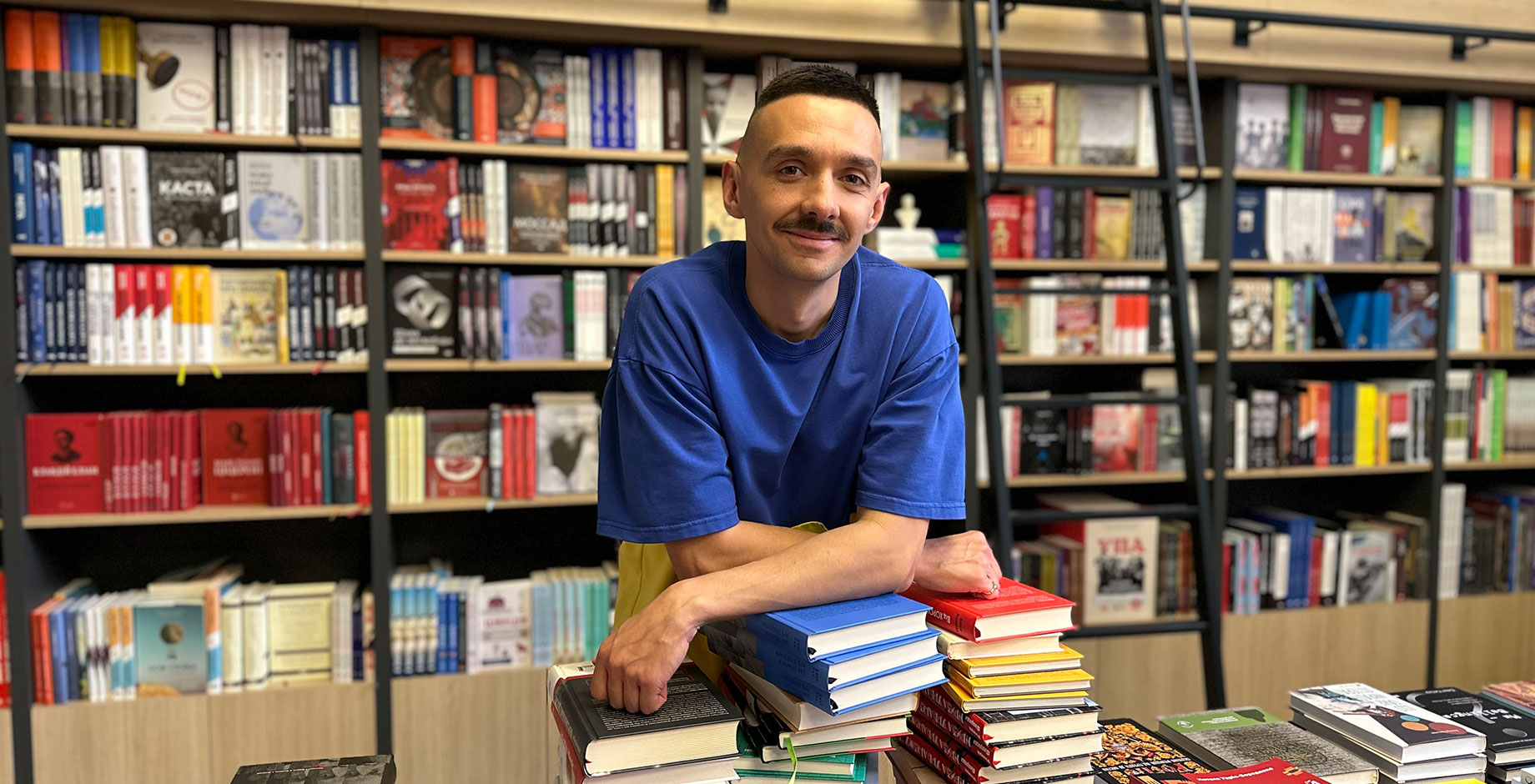
Given the success of the first location, Oleksii decided to expand Sens. On February 17, 2024, a new bookstore opened on one of Kyiv's main streets — a spacious venue with large windows impossible to miss when walking down Khreshchatyk. The new Sens immediately caused a stir among fans of Ukrainian literature and cultural events.
It was important to me that we open a space big enough to combine several functions — a bookstore, a café, and an event venue — a place for meetings and discussions, where all these functions could coexist without interfering with each other. That was the first requirement for the space.
The second was for Sens to appear in a visible, central district — so no one could overlook it. I wanted everyone to see that culture matters, that it's timely, that the book is here. That's why we chose this spot — right across from a main metro station, on Khreshchatyk, the very street where Putin once planned to hold his 'victory parade' in May 2022. It's deeply symbolic. We're showing both society and the state that culture must be among the top priorities — not somewhere outside the list, as it often was before the full-scale war.
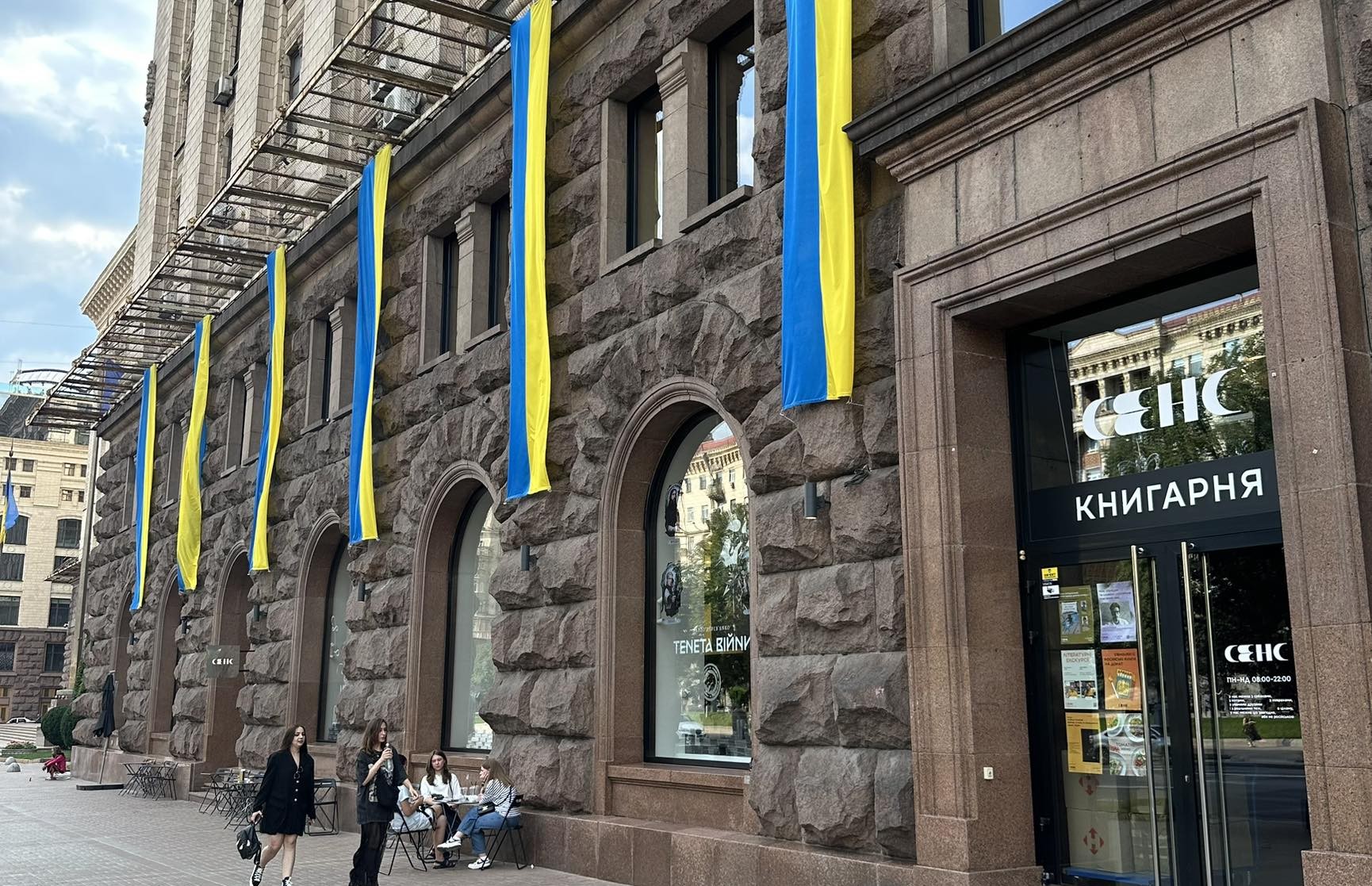
The second floor of Sens hosts an event space where over 50 events take place each month.
When we were just starting the renovation, I said: 'Here will be the stage, here the chairs, there'll be lots of people. And when Timothy Snyder comes — well, someone will probably have to stand.' And indeed, in February 2025, Timothy Snyder came — that was one of the biggest events we've ever had.
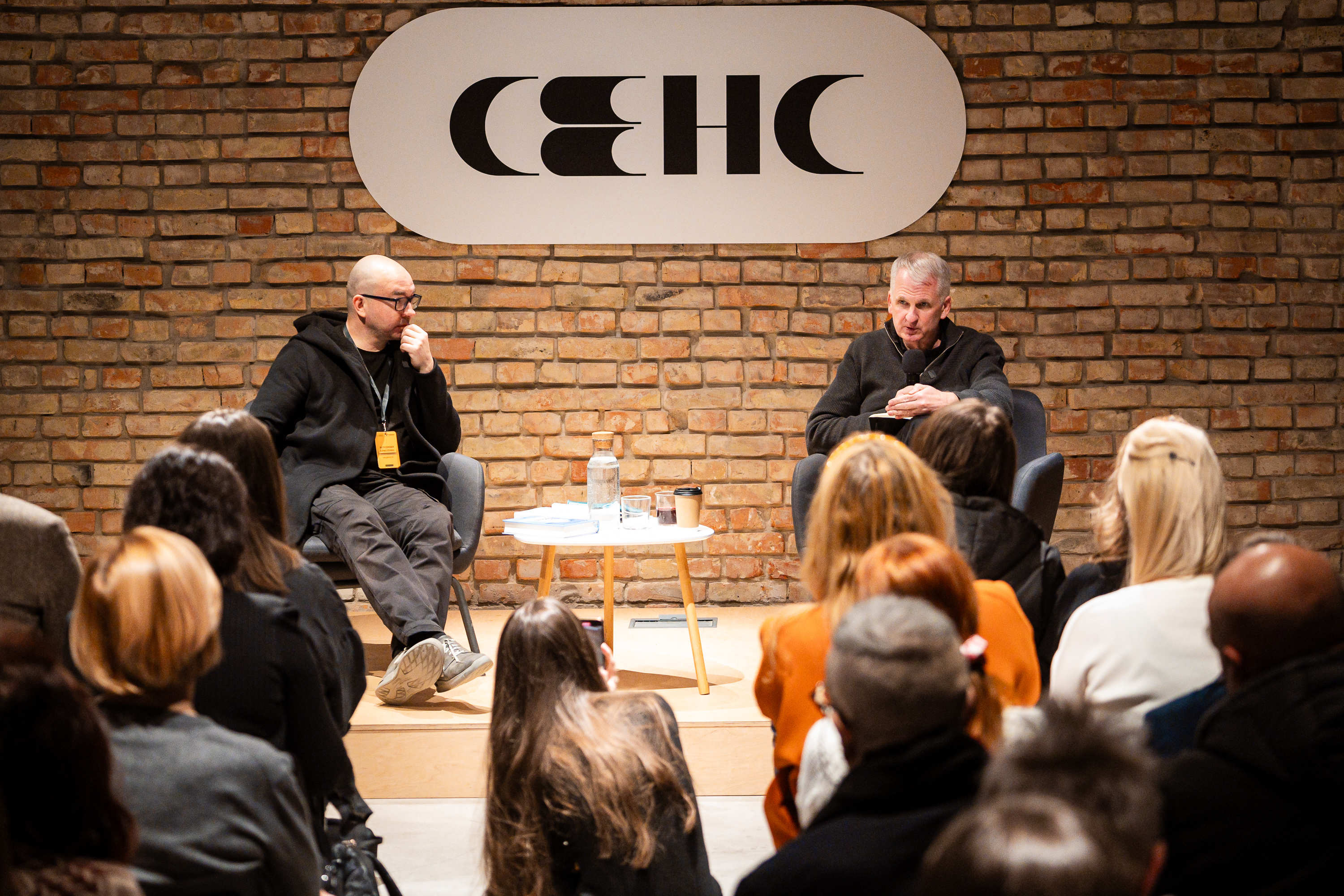
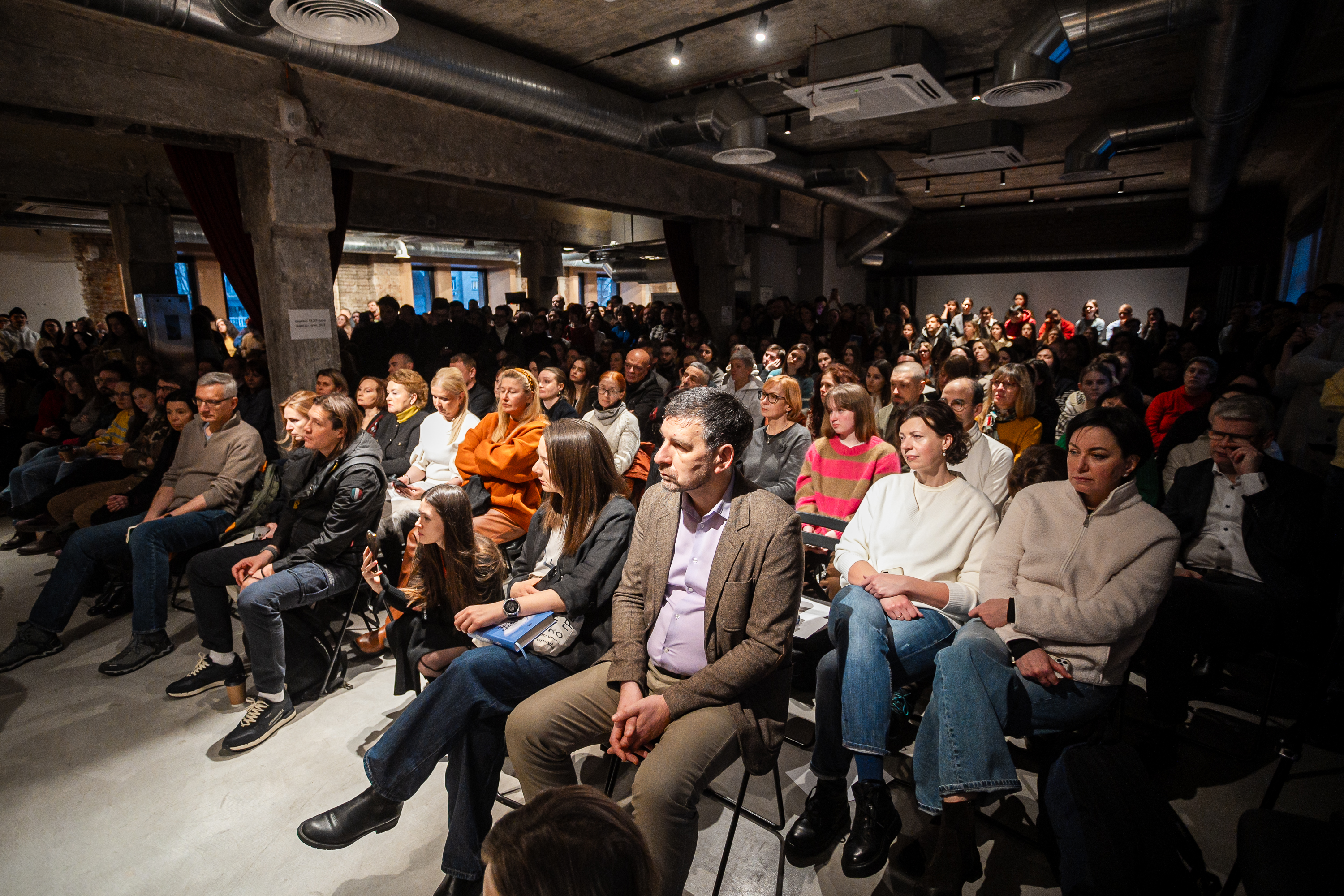
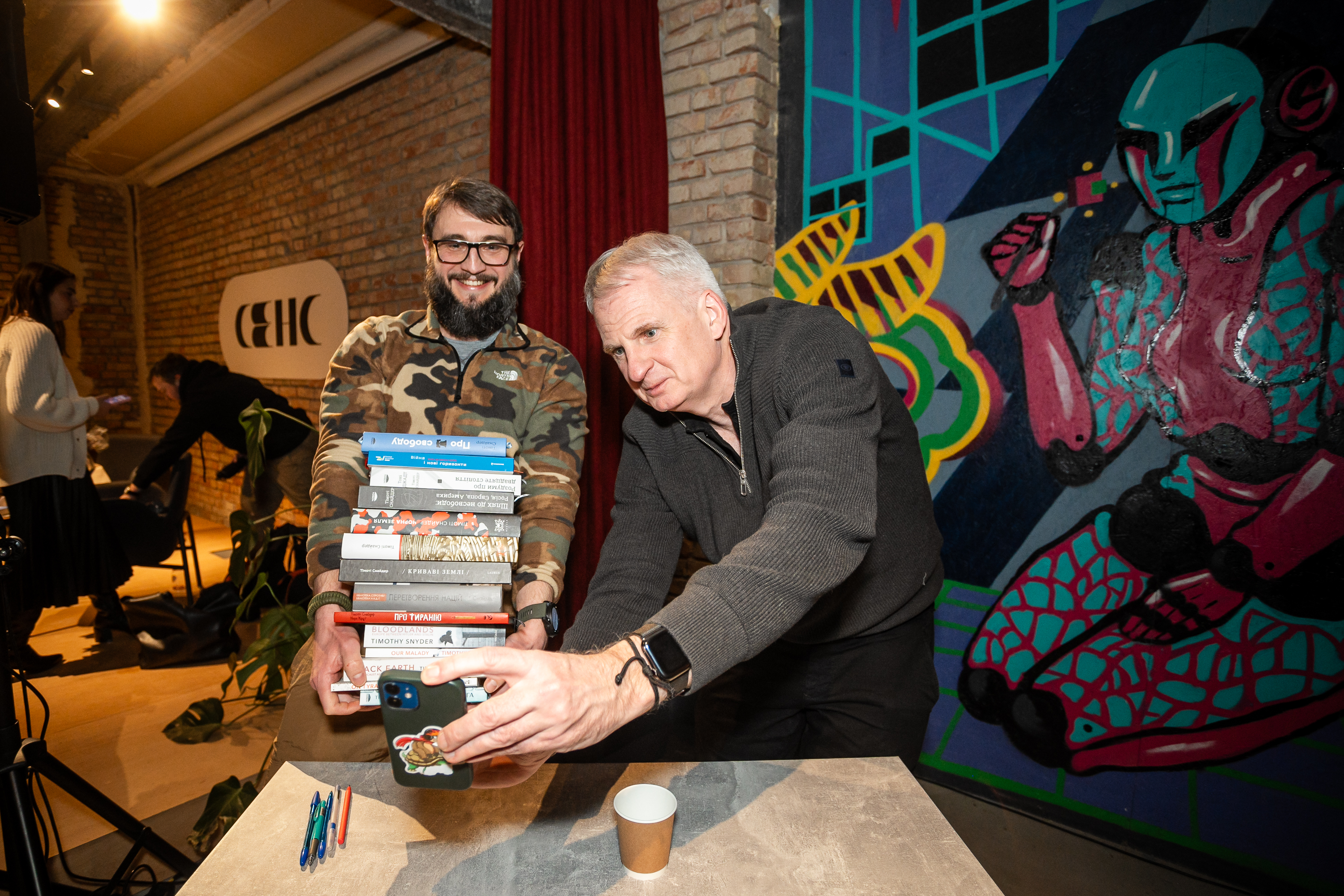
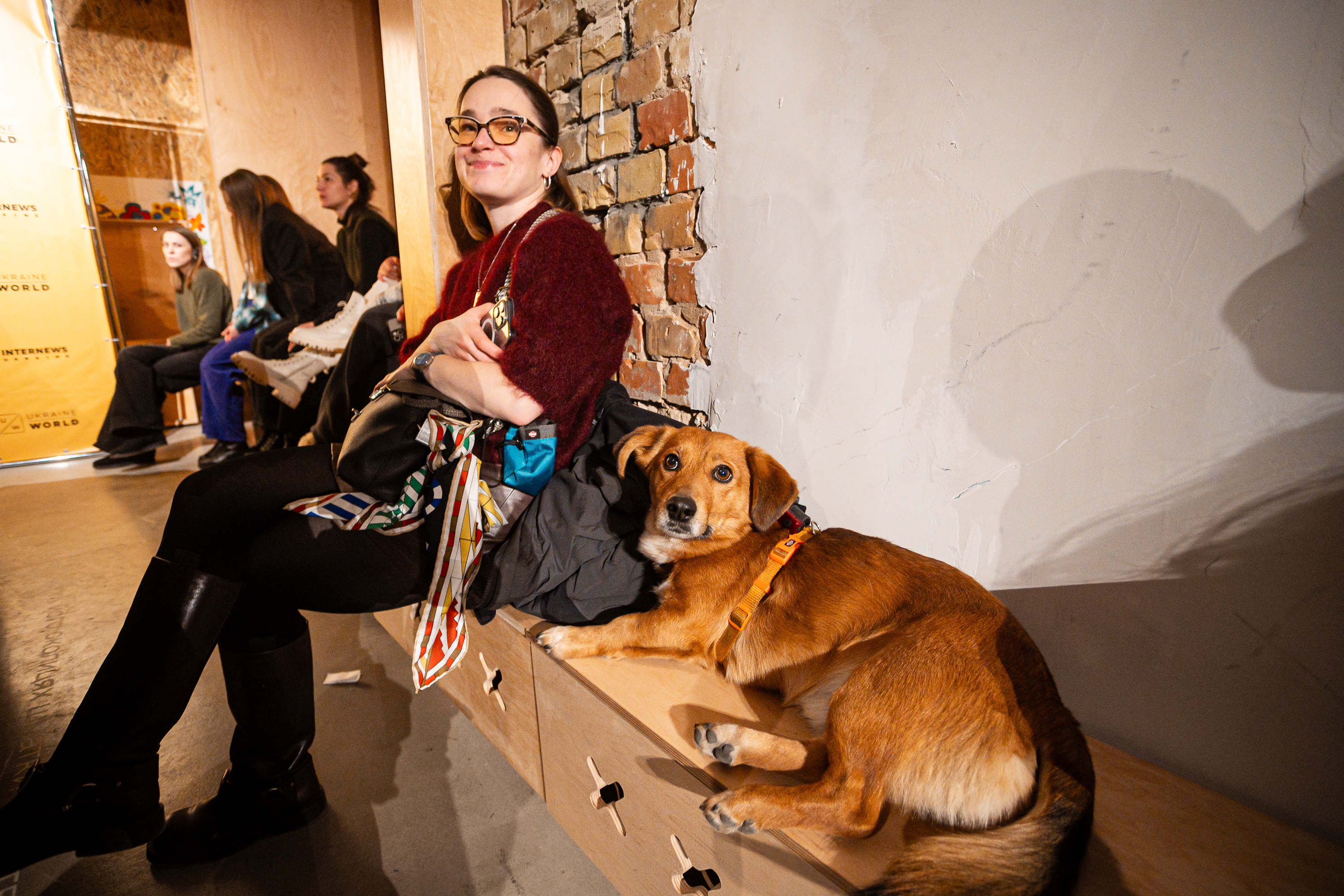
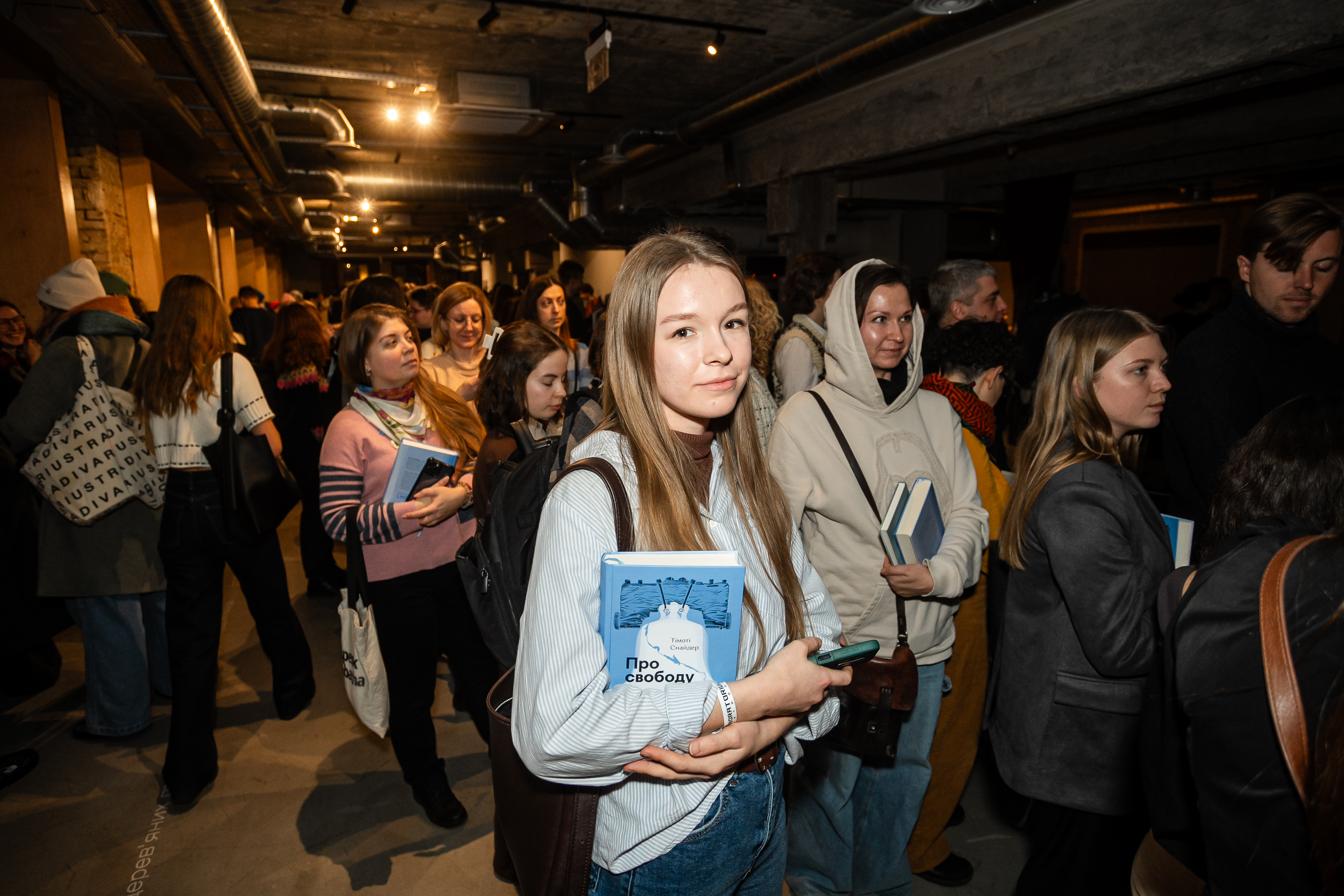
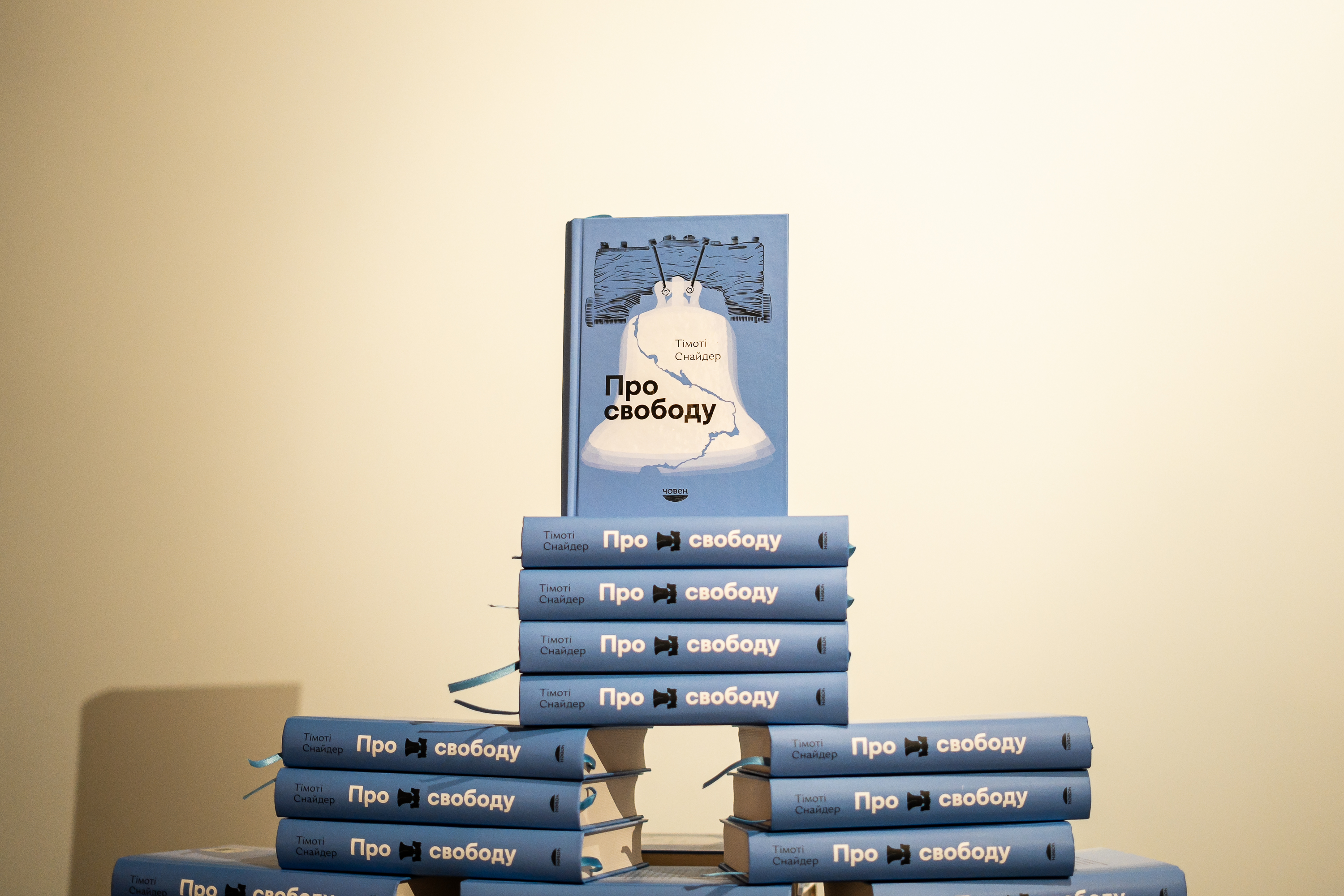
For me, it's not about single events that we can boast about — it's about the fact that they happen all the time. They attract all kinds of professional and thematic communities — architects, designers, urbanists, historians, and so on. These 'bubbles' meet and intersect — and at those intersections, something new is born. That, to me, is where the real magic happens.
That's why I try to keep this floor as an open public space, not fill it with commercial shelves. Sure, we could add more bookstands — it would make more business sense. But it would completely kill the spirit of the place.
According to Oleksii, the community around Sens is both Ukrainian-centered and inclusive, as the team does everything possible to make the space accessible to everyone.
Most people who are part of Sens have a clearly pro-Ukrainian stance. They're ready to actively express their position and defend the right to Ukrainian language and culture in their surroundings. Our community is very patriotic — people regularly join fundraising campaigns and volunteer initiatives.
Without false modesty, I can say that a lot of people want to be part of the Sens community. For some, it's a way to show they're 'in the right bubble.' Not all of them are avid readers or fully share our values, but even they want to be connected to it. Our community may not be entirely uniform, but what unites everyone is the feeling that Sens is a place where you can be yourself — among your people, and in safety.
Finding balance — that's the hardest part. We see ourselves as both a community organization and a business. But neither the world nor Ukraine yet has clear frameworks for evaluating projects like ours. For many, Sens on Khreshchatyk is just a recognizable business in the city center. In reality, though, we spend a huge amount of energy and financial resources on developing the civic side — promoting reading, creating an open social space.
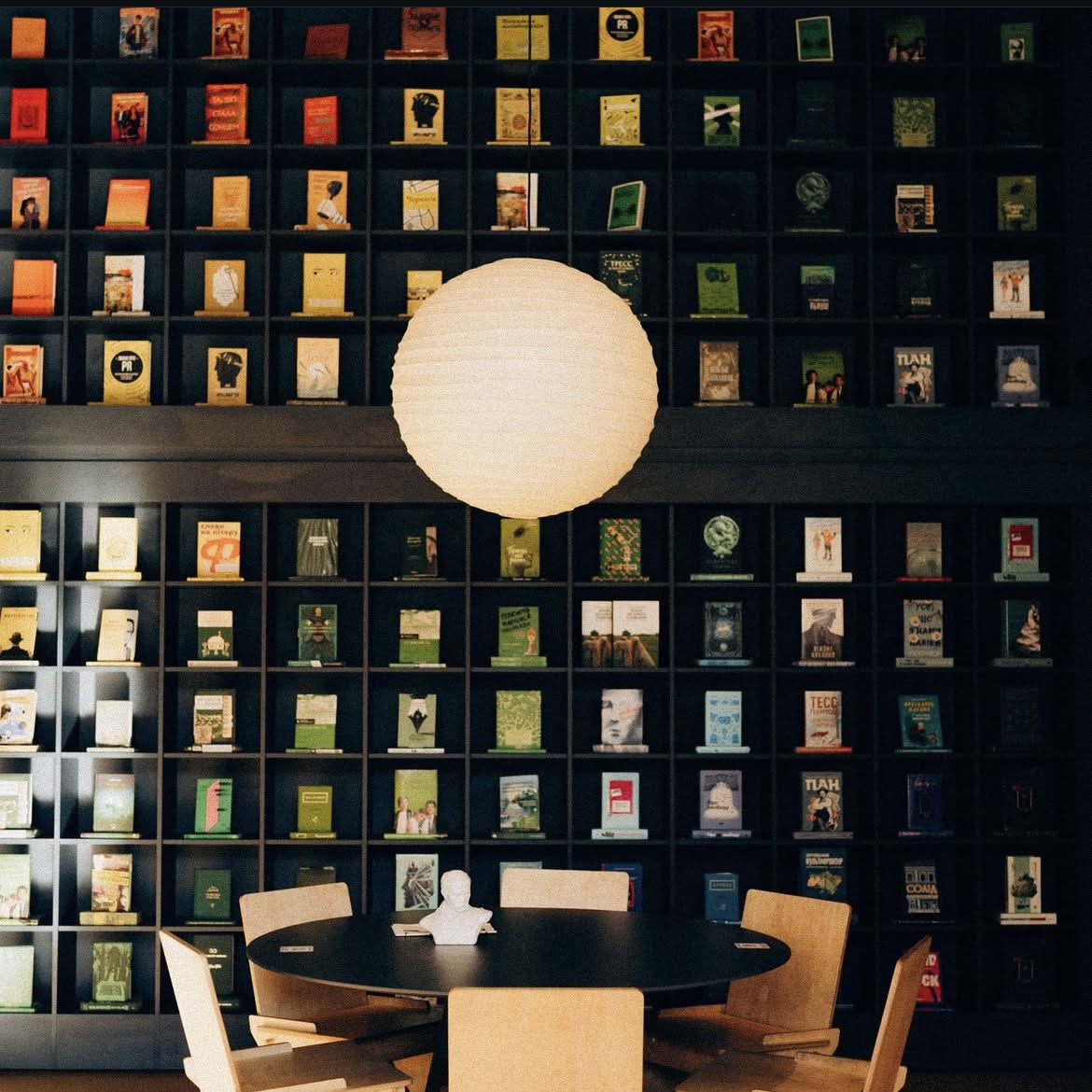
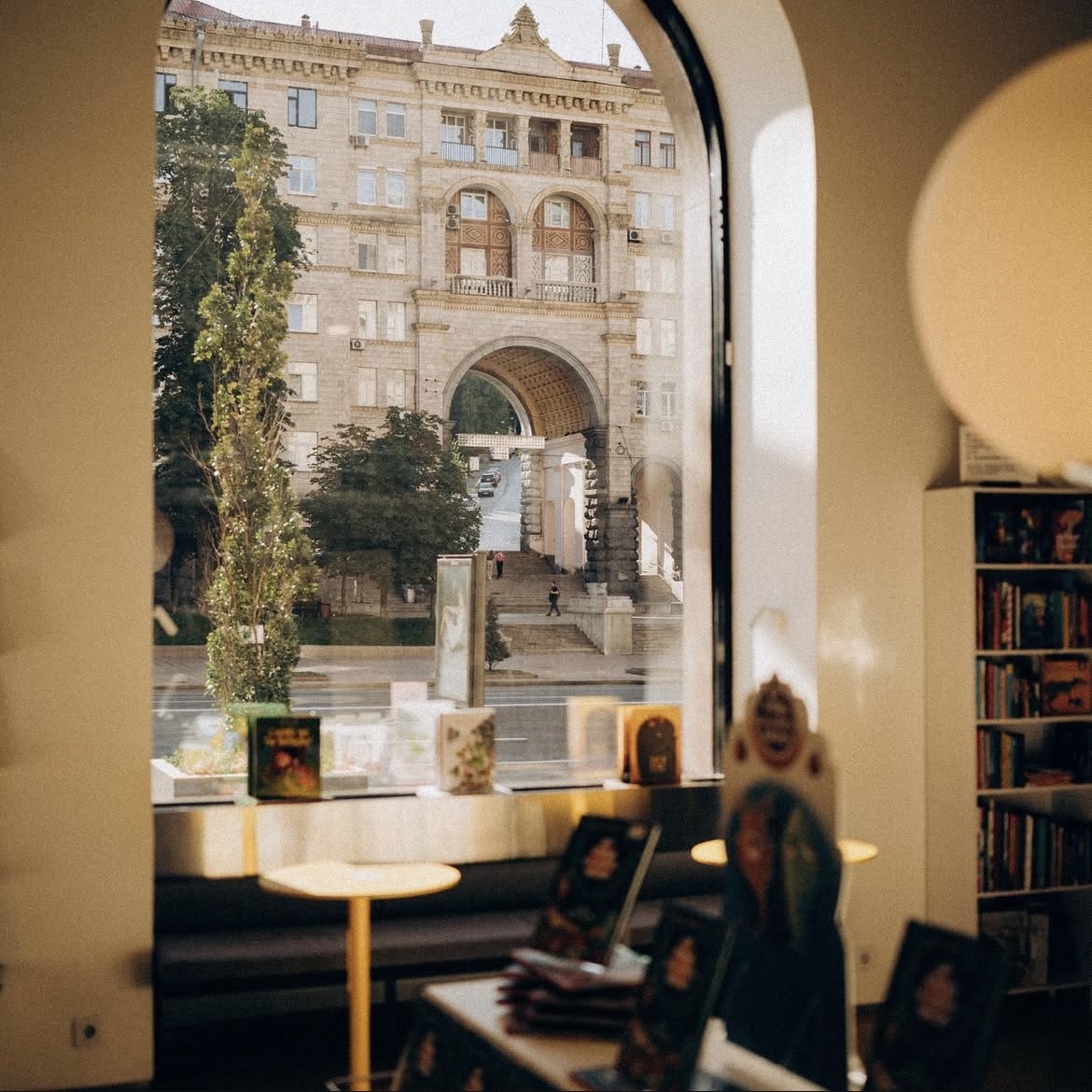

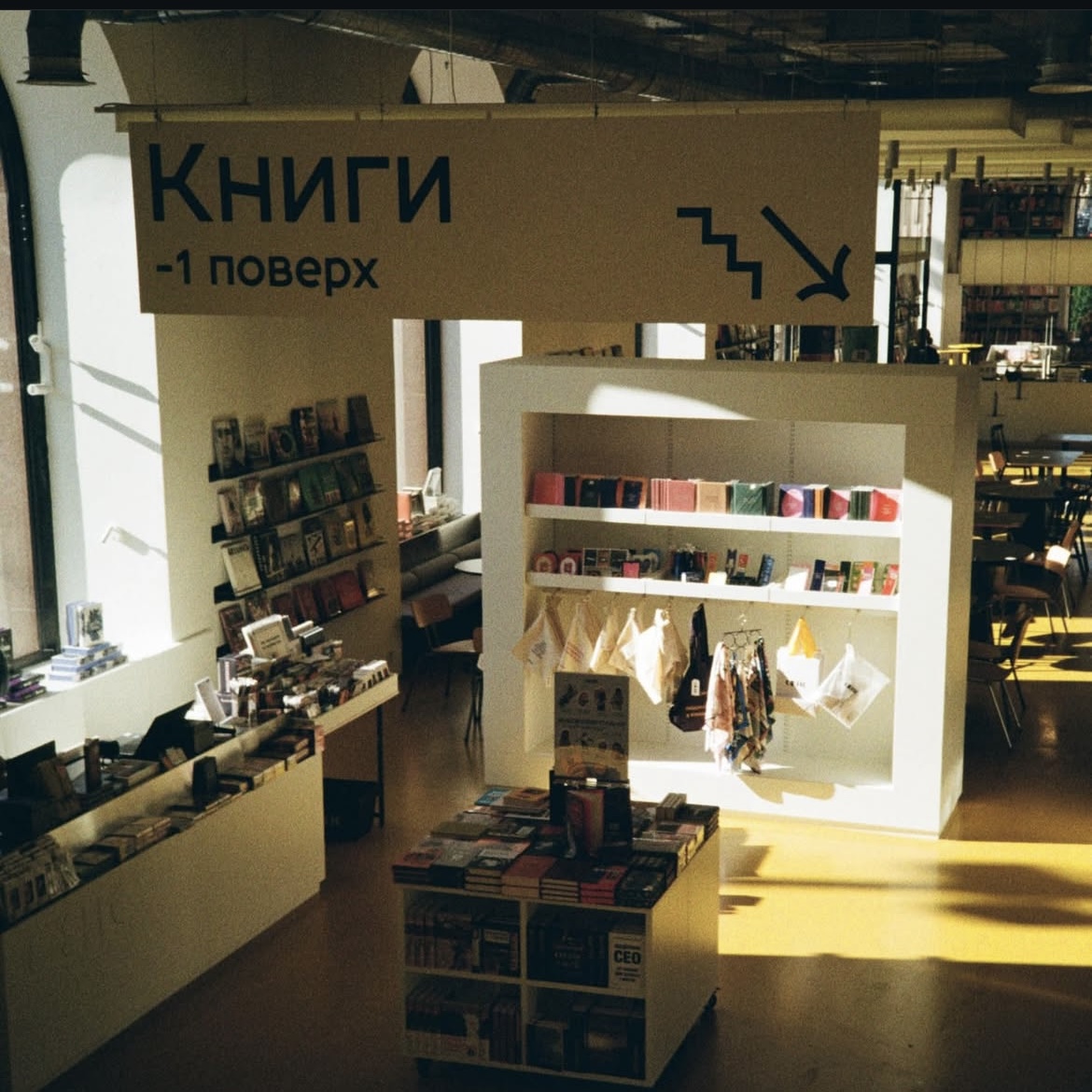

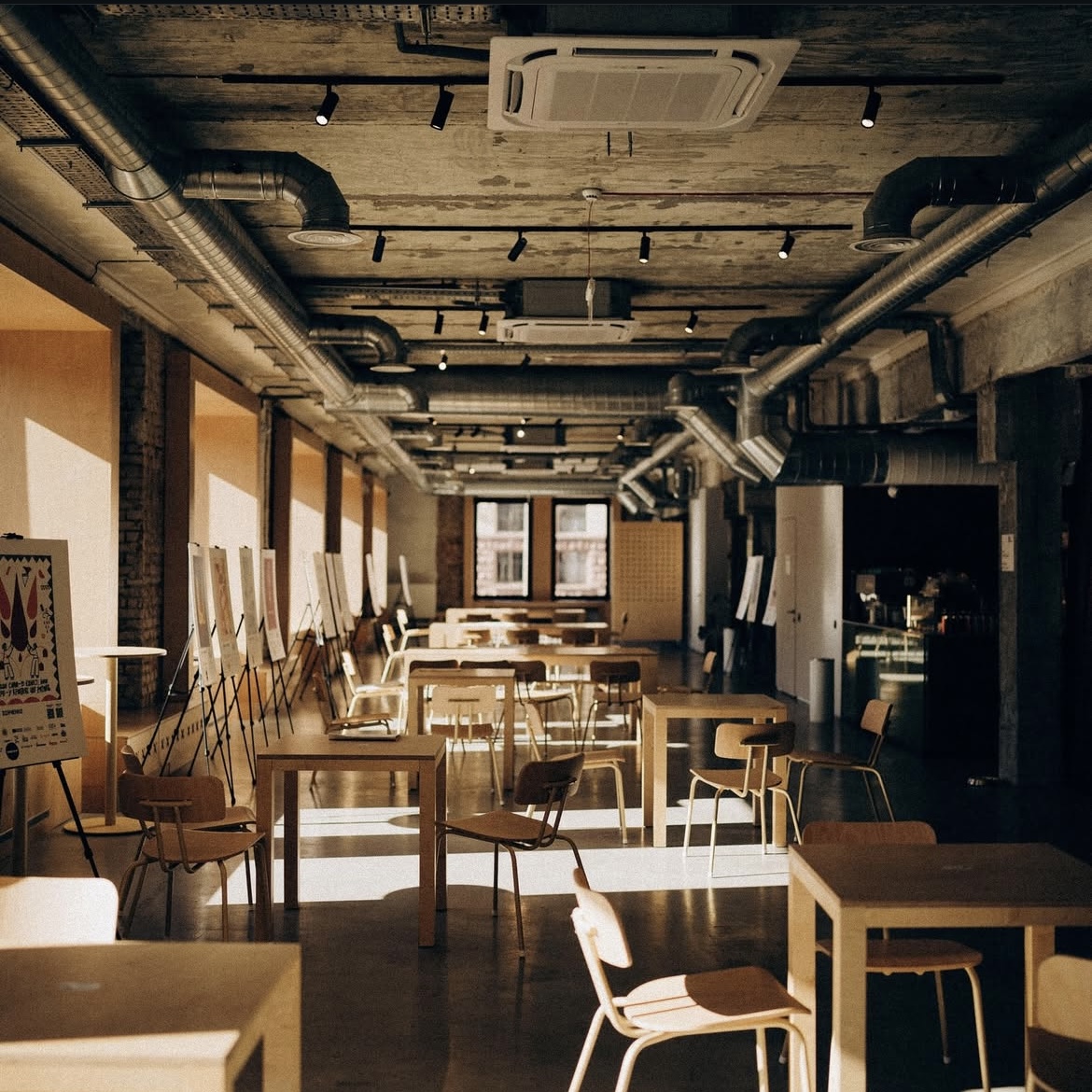
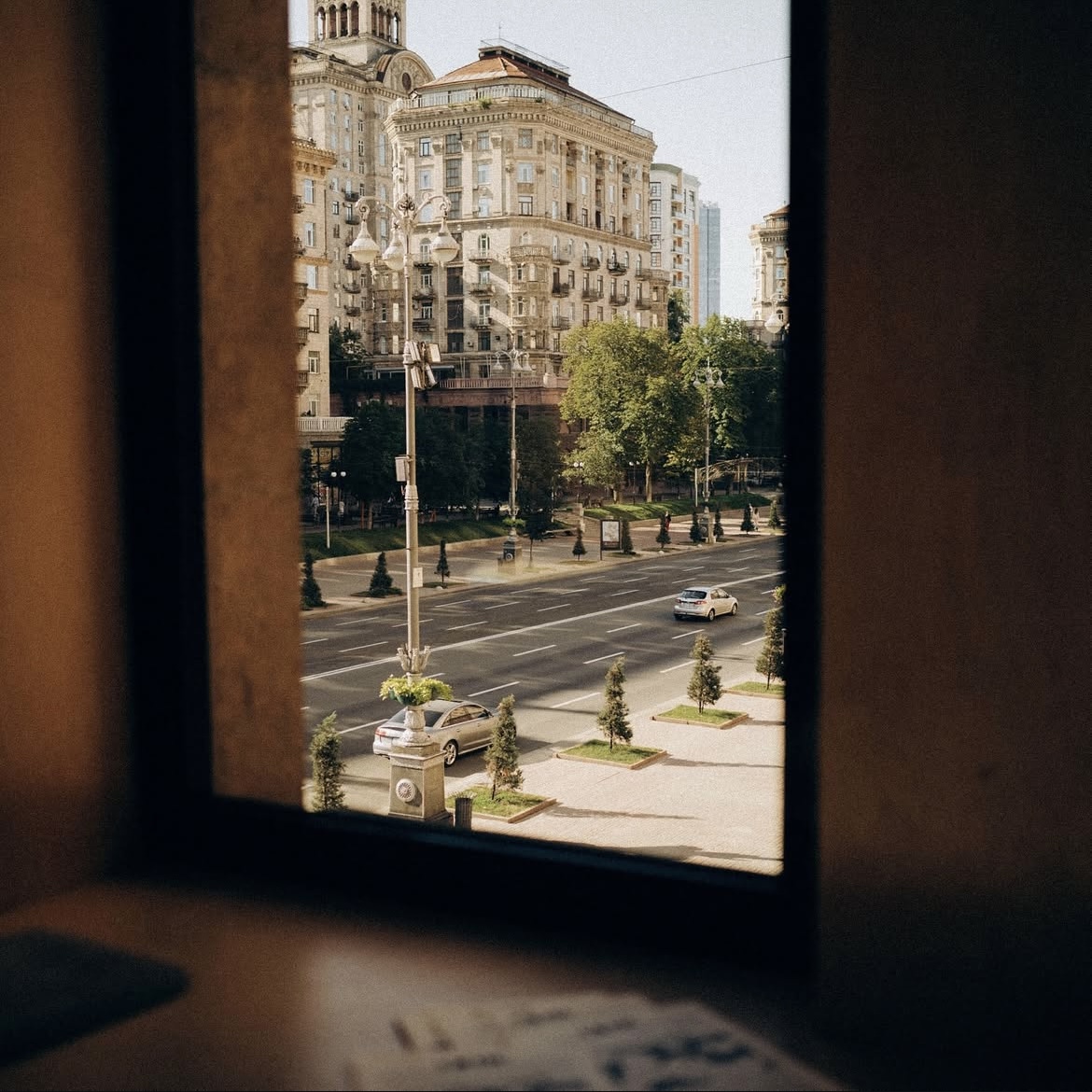
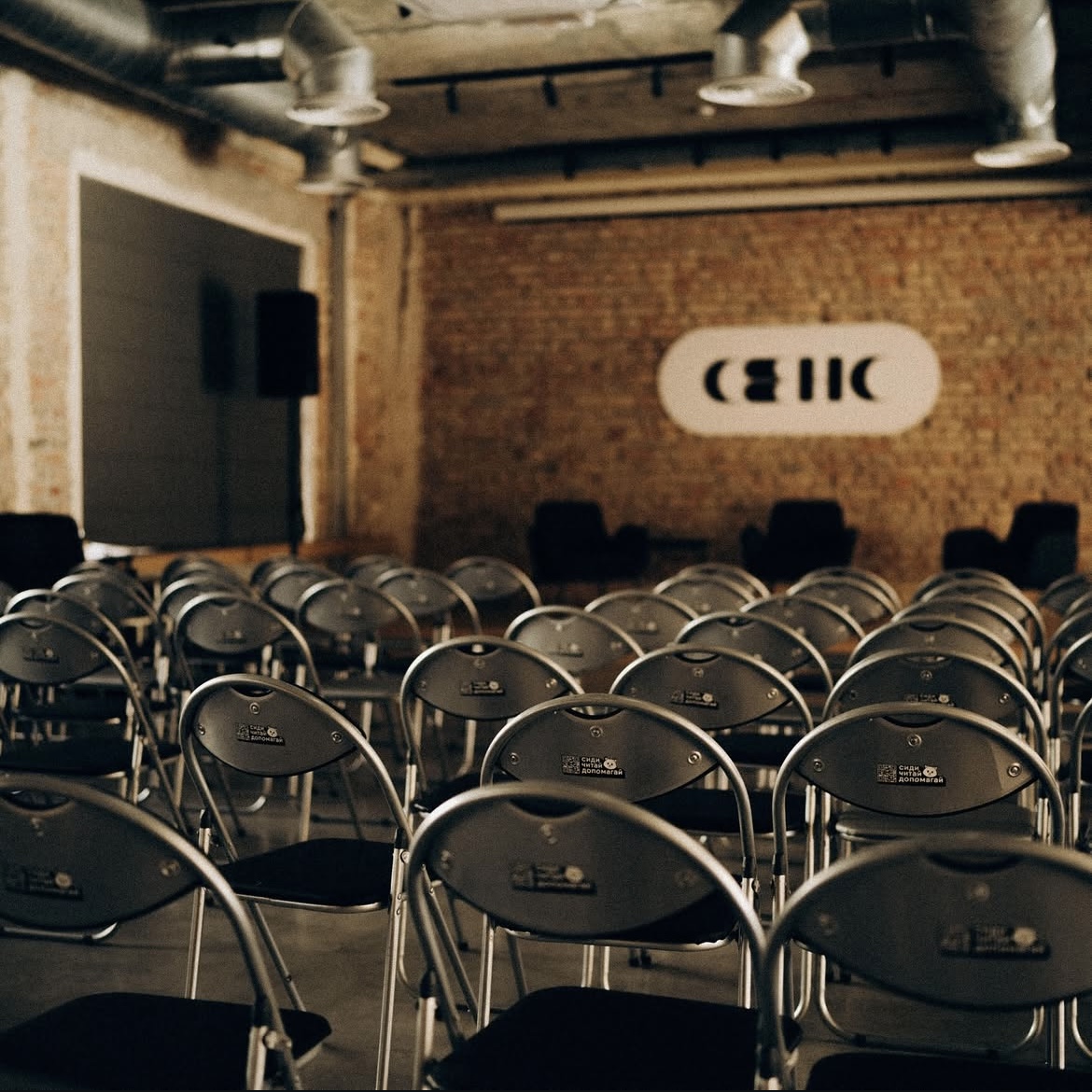
For example, we've consciously 'rooted' ourselves in free community activity on the second floor — and of course, that weakens us as entrepreneurs. It limits our sustainability and growth potential. That's why we try to strike a balance: we rent out some spaces for commercial use, so that we can in turn support non-commercial cultural events and partnerships. There's never enough money — we always want to launch more projects — but then comes the moment when you have to pay rent, taxes, salaries, and you realize: maybe we should've leaned a bit more into the business side. Still, we want our commercial presence to feel subtle, not intrusive for visitors.
This search for balance is ongoing. And it's actually good that our team pulls in different directions: some lean toward social initiatives, others toward business. That's where equilibrium is born. If the team were made up only of civic-minded people, we probably would've shut down by now. And if it were only business-focused — we wouldn't be as interesting, nor would we fulfill the mission we set out from the start: to make Sens on Khreshchatyk a true cultural hub.
In Oleksii's view, the potential for developing a strong book culture in Ukraine is enormous — but without systemic effort, that progress risks being slow and unstable, making it harder to build lasting interest in Ukrainian authors.
Today, the book industry in Ukraine still isn't united enough to support itself collectively. That shows we haven't yet grasped the main thing: first we need to grow roots, to strengthen ourselves — and only then start competing.
At the beginning of the full-scale invasion, many people rushed to bookstores to figure out what it actually means to be Ukrainian. What is this distinct identity? Because of our colonial past, our roots were cut off, and we often don't know who we are. That's why we adapt so easily abroad — because we lack strong grounding. Early in the full-scale war, we saw a real boom: people were actively seeking history books, rereading Ukrainian classics, trying to understand what Ukrainian culture is, what it means to be Ukrainian. And then, as the tension eased, they started reading what's being advertised. Unfortunately, most of what's promoted is what's globally popular — fantasy, dark fantasy, and so on. So for publishers, it's safer to release books that already have millions of sales abroad, because they know they'll make money. While some Ukrainian bookstores try to survive by offering discounts, we're focusing on promoting Ukrainian books. That's why, when we form Sens's top reading lists, we make sure that at least half of the titles are by Ukrainian authors.
Meanwhile, one of Sens's booksellers, Lana, notes that the demand for Ukrainian classics hasn't gone anywhere.
The myth that Ukrainian literature is all sorrow and gloom, or that the classics are too heavy or boring — that's slowly fading away. From time to time, readers come looking for works by Sofiia Yablonska or Valerian Pidmohylnyi; others are curious about Olha Kobylianska and Ivan Franko. After several recent theater productions, there's been growing interest in the Executed Renaissance writers and the Sixtiers. Some books — like those by Mykola Vingranovskyi — disappear from the shelves in no time.
Opening a bookstore in Odesa is one of Oleksii's most anticipated goals — something he hopes to realize next year. He sees it as an important step toward building a bridge between Ukraine's southern capital and the rest of the country, as well as revitalizing the pro-Ukrainian movement in a city that has long lived under the pressure of Russian imperial ambitions.
Right now, it sometimes feels as if Odesa is a separate peninsula. The problem is, we already had one such peninsula — Crimea — which didn't receive enough attention from the state or society, and that's why it became easy prey for Russia. I wouldn't want that to happen with Odesa. That's why it's so important for me that a Ukrainian-centered cultural space appears there — a place where everyone with a strong pro-Ukrainian stance can meet, see that they're not alone, and feel their collective strength.
In the future, Oleksii also hopes to open Sens in Lviv and Dnipro.
Wherever I go, the first question I hear is: 'So, when will Sens open in our city?' That's why I'm now working on a partnership package — a set of proposals for people ready to invest in creating new Sens locations. This collaboration must be built on a solid business model: the project should be self-sustaining, capable of funding its own growth and eventually bringing a return on investment for those who support it. That's exactly what my team and I plan to focus on in 2026. I think we've already proven ourselves — now it's about making sure every city can have its own Sens.
The article is produced by UkraineWorld with the support of the Askold and Dir Fund as a part of the Strong Civil Society of Ukraine - a Driver towards Reforms and Democracy project, implemented by ISAR Ednannia, funded by Norway and Sweden. The contents of this publication are the sole responsibility of UkraineWorld and can in no way be taken to reflect the views the Government of Norway, the Government of Sweden and ISAR Ednannia.
